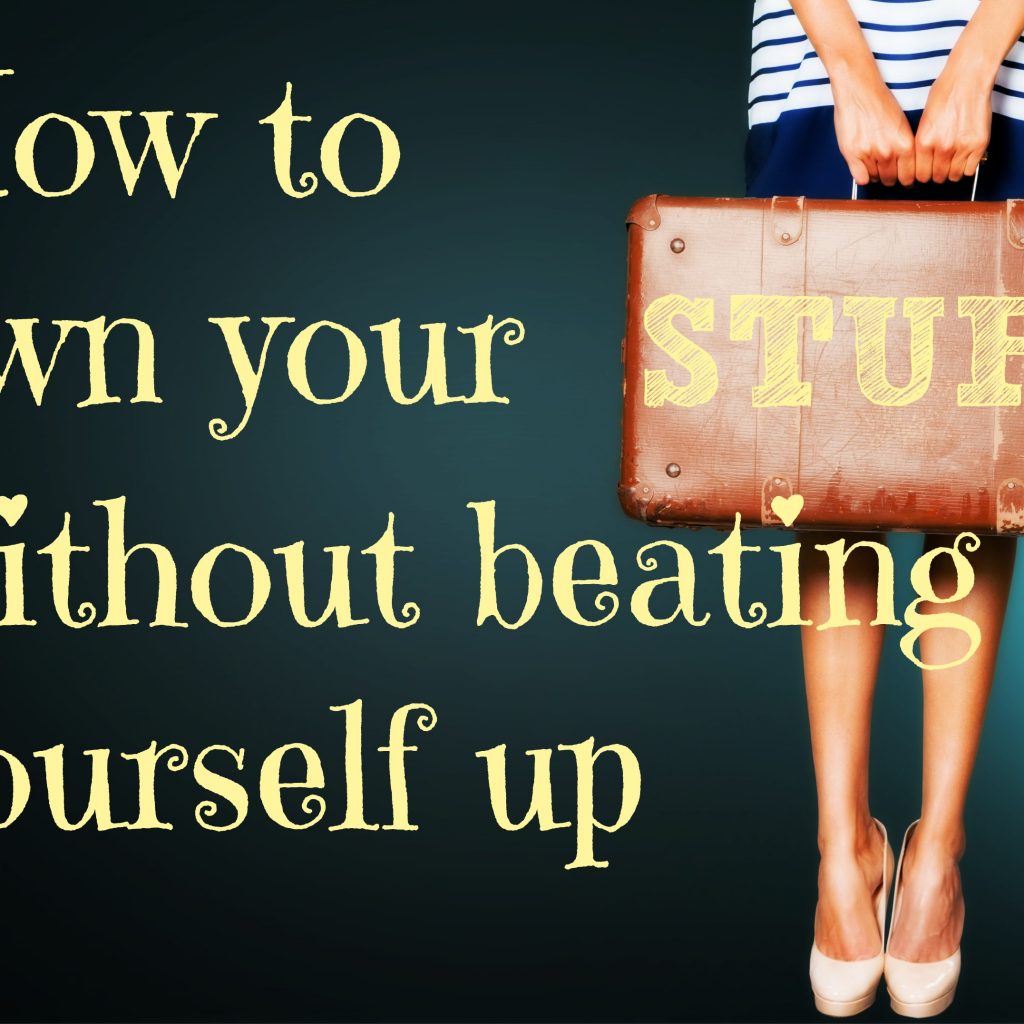Get to the root of the problem – your faulty belief system
Your main problem is not your stuff–it’s how you think about your stuff. If you’re beating yourself up regularly then it is very likely you have some rigid standards about performance. In other words, you operate by a high bar. High bar people have to be perfect, can’t make mistakes, and if they do, others are not permitted to see them. To avoid a beating of the self, some people use denial and blame to deal with “stuff”. When that doesn’t work, one is forced to accept responsibility. The underlying belief system doles out the punishment. Let the beatings begin. If you want to do a better job owning your stuff, it begins by getting to the root of the problem–identifying your faulty belief system. Here are some examples. “I have to be perfect. I cannot make mistakes. I cannot show weakness.” This is a faulty belief system. “If I make mistakes or do something wrong it is unacceptable and I deserve to be punished.” This too is a faulty belief system. If you want to own your stuff without beating yourself up, you have to change your faulty belief system.Take an honest look at the impact of your faulty belief system
How do you look after you beat yourself up? Look at the emotional bruises. Some people actually punish themselves physically with cuts and bruises. What is the status of your self-esteem? If you feel worse, feel ashamed, depressed, or think only negatively, you have done great harm to yourself. Think honestly about your relationships. How are they impacted by your faulty belief system? Are you extremely defensive? Are you rigid in your thinking? Do people have to walk on eggshells around you? Do you have intense battles because you resist owning your stuff? If your faulty belief system is causing you and those you care about harm, then it is time you do something about it. Again, the main problem is not your stuff. It’s how you think about your stuff. [Tweet “Your main problem is not your stuff–it’s how you think about your stuff. “]Introduce yourself to a new way of looking at your stuff
It’s time to change your faulty belief system. Easier said than done. I know, I understand. However, it’s time to make some introductions to a modified belief system. Relationships begin with an introduction. Repeated encounters develop a stronger relationship. You currently have a relationship with The Constant Critic. This is the belief system that tells you how things should be and beats you up when you fail to meet the standard. It’s time for a new relationship. Introducing The Compassionate Coach. Here are some of the traits of the Compassionate Coach.- Believes your inner core is good
- Does not expect perfection
- Does not judge you or show approval based on performance
- Confronts problems honestly with empathy
- Identifies teachable moments to promote personal growth
Confront the Constant Critic
Rather than beat yourself up, why not take on the Constant Critic? This is the voice in your head that is causing all the problems. The Constant Critic is the high bar setter, the weapon handler, the negative drum beater. It needs to be silenced! When confronted with “your stuff” the Constant Critic starts the chatter. Refuse to cower. Confront the Constant Critic with courage and set your boundary. “I refuse to give you attention. You’re intent is to punish me by making me feel bad about myself. I will listen only to the voice of the Compassionate Coach.” Having drawn a line in the sand, rehearse the messages of the Compassionate Coach. “I am not a perfect person. As a fellow human being I will make mistakes. I can own them without shame. I can take responsibility for my actions and learn from my mistakes to grow as an individual.”Show yourself some compassion
People with high bars have a shame core and tend to lack empathy for themselves. Instead they will be harder on themselves in order to avoid future mistakes. This highly negative and punitive approach may be a motivator to work harder but it doesn’t make one feel good about themselves on the inside. The core remains shameful. If you want to be able to own your stuff without beating yourself up you will need to show yourself some compassion. Extend yourself some grace. The Constant Critic needs to be silenced again, and the Compassionate Coach can speak some healthy truth to your stuff.Now it’s your turn
Are you a former self-punisher? Share your secret in how you learned to own your stuff without beating yourself up. Leave a comment below. Do you beat yourself up over your stuff? Share one thing you plan to do today to stop this pattern.Podcast: Play in new window | Download
Subscribe: RSS

